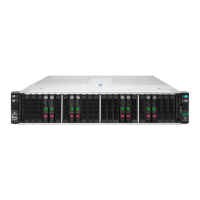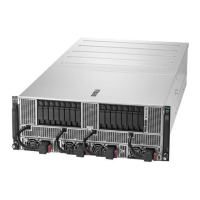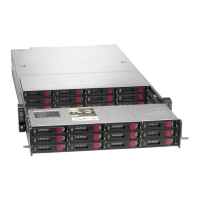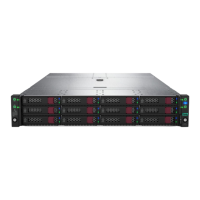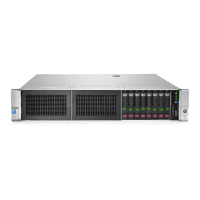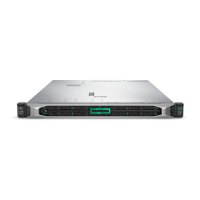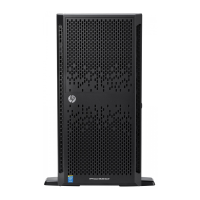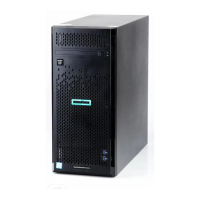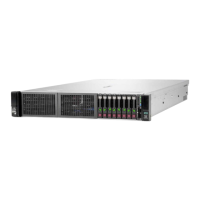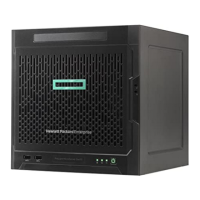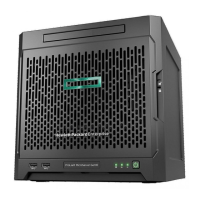Software and configuration utilities 153
This functionality supports operating systems that are supported by the node. For operating systems
supported by the node, see the Hewlett Packard Enterprise website
(http://www.hpe.com/info/supportos).
If a significant change occurs between data-gathering intervals, the survey function marks the previous
information and overwrites the survey data files to reflect the latest changes in the configuration.
Survey functionality is installed with every Intelligent Provisioning-assisted Insight Diagnostics
installation, or it can be installed through the SPP ("Service Pack for ProLiant" on page 153).
Erase Utility
CAUTION: Perform a backup before running the Erase Utility. The utility sets the system to
its original factory state, deletes the current hardware configuration information, including array
setup and disk partitioning, and erases all connected hard drives completely. Before using this
utility, see the instructions in the Intelligent Provisioning User Guide.
Use the Erase Utility to erase drives and Active Health System logs, and to reset UEFI System Utilities
settings. Run the Erase Utility if you must erase the system for the following reasons:
• You want to install a new operating system on a node with an existing operating system.
• You encounter an error when completing the steps of a factory-installed operating system
installation.
To access the Erase Utility, click the Perform Maintenance icon from the Intelligent Provisioning home
screen, and then select Erase.
For more information about the Erase Utility, see the Intelligent Provisioning User Guide on the Hewlett
Packard Enterprise website (http://www.hpe.com/info/intelligentprovisioning/docs).
Scripting Toolkit for Windows and Linux
The STK for Windows and Linux is a server deployment product that delivers an unattended automated
installation for high-volume server deployments. The STK is designed to support ProLiant servers. The
toolkit includes a modular set of utilities and important documentation that describes how to apply these
tools to build an automated server deployment process.
The STK provides a flexible way to create standard server configuration scripts. These scripts are used to
automate many of the manual steps in the server configuration process. This automated server
configuration process cuts time from each deployment, making it possible to scale rapid, high-volume
server deployments.
For more information or to download the STK, see the Hewlett Packard Enterprise website
(http://www.hpe.com/servers/proliant/stk).
Service Pack for ProLiant
The SPP is a comprehensive systems software (drivers and firmware) solution delivered as a single
package with major server releases. This solution uses HP SUM as the deployment tool and is tested on
all supported ProLiant servers including ProLiant Gen8 and later servers.
SPP can be used in an online mode on a Windows or Linux hosted operating system, or in an offline mode
where the server is booted to an operating system included on the ISO file so that the server can be
updated automatically with no user interaction or updated in interactive mode.
For more information or to download SPP, see one of the following pages on the Hewlett Packard
Enterprise website:
• Service Pack for ProLiant download page (http://www.hpe.com/servers/spp/download)

